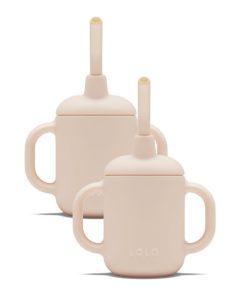Toddler milk powder can be a helpful option for some toddlers. Toddlerhood is a period of rapid growth and development. Many parents wonder if their toddler needs additional nutrients beyond breast milk or cow’s milk. This guide explores what milk powder is, its potential benefits, and factors to consider when choosing a milk powder.
Understanding Milk Powder
Milk powder is a milk-based drink formulated specifically for toddlers between the ages of 1 and 3. It is typically made from cow’s milk that is modified to be easier for toddlers to digest. Milk powder is often fortified with additional nutrients, like iron, vitamin D, and other essential vitamins and minerals.
Toddler milk powder is not a mandatory supplement. Breast milk or cow’s milk can provide enough nutrients for most healthy toddlers. However, milk powder can be a good option for toddlers who:
- Do not consume enough dairy products
- Have certain dietary restrictions
- Have a low intake of iron or other essential nutrients
If you are considering introducing milk powder to your toddler’s diet, talk to your doctor first. Your doctor can help you determine if milk powder is right for your toddler and recommend a specific brand.
Potential Benefits of Milk Powder
There are several potential benefits to introducing milk powder to your toddler’s diet. These include:
Nutrient Rich:
Toddler milk powder can be a good source of essential vitamins and minerals, like iron and vitamin D, that may be lacking in a toddler’s diet.
Easy to Digest:
Toddler powder is often easier for toddlers to digest than cow’s milk.
Convenient:
Toddler milk powder is shelf-stable and easy to prepare, making it a convenient option for busy families.
Promotes Growth:
Some milk powders are fortified with additional protein and calories to support toddler growth.
Choosing the Right Milk Powder
If your doctor approves introducing milk powder to your toddler’s diet, there are several factors to consider when choosing a brand:
Ingredients:
Look for a milk powder made with high-quality ingredients and fortified with essential nutrients.
Iron Content:
Iron deficiency is a common concern for toddlers. Choose a milk powder with a high iron content.
Age Appropriateness:
There are milk powders formulated for different age ranges. Choose one that is appropriate for your toddler’s age.
Taste:
Some milk powders come in different flavors. Consider your toddler’s preferences.
Budget:
Milk powder prices can vary depending on the brand and ingredients.
Important Considerations
While milk powder can be a helpful supplement for some toddlers, there are some important considerations:
Not a Replacement for Breast Milk or Cow’s Milk:
Milk powder is not a replacement for breast milk or cow’s milk.
Limit Milk Intake:
Too much milk can displace other important foods and drinks from your toddler’s diet.
Dental Health:
Frequent milk intake can increase your toddler’s risk of cavities. Ensure proper oral hygiene practices.
Following Instructions:
Always follow the preparation instructions on the package carefully to ensure proper hygiene and nutrient content.
Milk powder can be a helpful addition to some toddlers’ diets, but it’s not necessary for all toddlers. If you are considering introducing toddler milk powder to your toddler’s diet, talk to your doctor first. They can help you determine if it’s right for your toddler and guide you in choosing the right product.
Toddler Milk Powder: Making Informed Choices
If your doctor approves introducing milk powder to your toddler’s diet, there are several factors to consider when choosing a brand:
Ingredients:
Look for a milk powder made with high-quality ingredients and fortified with essential nutrients.
Iron Content:
Iron deficiency is a common concern for toddlers. Choose a toddler milk powder with a high iron content.
Age Appropriateness:
There are milk powders formulated for different age ranges. Choose one that is appropriate for your toddler’s age.
Taste:
Some milk powders come in different flavors. Consider your toddler’s preferences.
Budget:
Milk powder prices can vary depending on the brand and ingredients.
Building a Healthy Routine
Toddler milk powder can be a helpful supplement for some toddlers, but it should be incorporated into a balanced diet that includes a variety of healthy foods from all food groups. Here are some tips for building a healthy routine for your toddler:
Offer a Variety of Foods:
Expose your toddler to a variety of nutritious foods from all food groups, including fruits, vegetables, whole grains, and lean protein sources.
Make Mealtime Fun:
Create a positive mealtime environment. Let your toddler explore different foods and textures, but avoid forcing them to eat.
Limit Sugary Drinks:
Sugary drinks can displace healthier options and contribute to cavities. Offer water or milk as the main beverages.
Set a Good Example:
Children learn by watching. Model healthy eating habits yourself.
By following these tips, you can help your toddler develop healthy eating habits that will last a lifetime.
Milk powder can be a helpful addition to some toddlers’ diets, but it’s not necessary for all toddlers. If you are considering introducing toddler milk powder to your toddler’s diet, talk to your doctor first. They can help you determine if it’s right for your toddler and guide you in choosing the right product.
Toddler Milk Powder: A Supplement, Not a Replacement
Toddler milk powder can be a helpful supplement for some toddlers, but it should be incorporated into a balanced diet that includes a variety of healthy foods from all food groups. Here are some tips for building a healthy routine for your toddler:
Offer a Variety of Foods:
Expose your toddler to a variety of nutritious foods from all food groups, including fruits, vegetables, whole grains, and lean protein sources. This will ensure they get the nutrients they need to grow and develop.
Make Mealtime Fun:
Create a positive mealtime environment. Let your toddler explore different foods and textures, but avoid forcing them to eat. Mealtime can be a time for socializing and bonding with your child.
Limit Sugary Drinks:
Sugary drinks can displace healthier options and contribute to cavities. Offer water or milk as the main beverages. Water is essential for overall health, and milk provides important nutrients for toddlers.
Set a Good Example:
Children learn by watching. Model healthy eating habits yourself. If you enjoy a variety of healthy foods, your toddler is more likely to follow suit.
By following these tips, you can help your toddler develop healthy eating habits that will last a lifetime.


